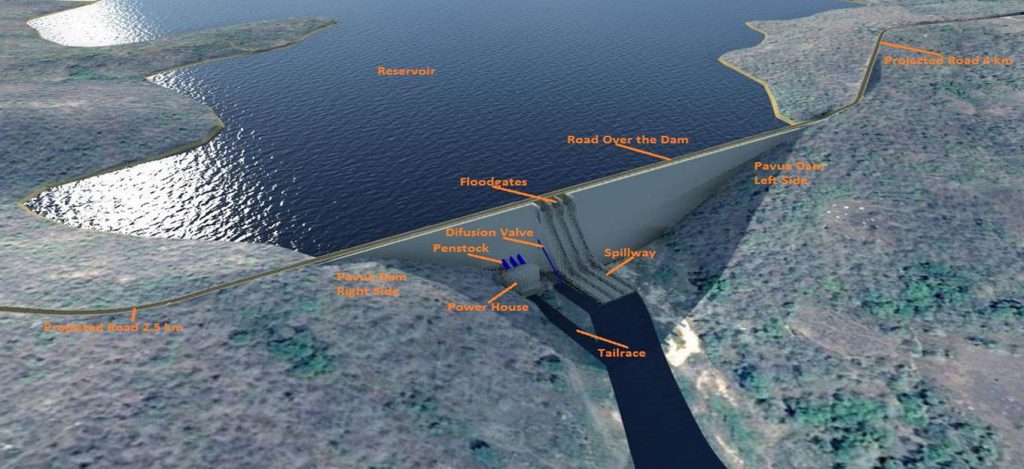
Pavua will be amongst Mozambique’s first renewables IPPs and will generate up to 160MW of electricity for the national grid
Mozambique is vulnerable to climate change, experiencing recurrent droughts and flooding which undermine food security, livelihoods and public health. Only approximately 34% of the population has access to electricity; the majority of whom are in and around the main cities. This lack of infrastructure remains a significant constraint to improving levels of education, healthcare and agriculture.
However, Mozambique has been growing at a rapid pace, with 7% annual GDP growth from 2013 to 2019. The past decade has seen a boom of large-scale projects largely within the extractive industries such as coal, gas and timber. Energy consumption is expected to increase rapidly as a result of this growth. Peak demand in Mozambique is expected to have risen from 1,120 MW in 2017 to 6,722 MW by 2042, according to Electricidade de Mocambique’s Integrated Master Plan (2018-2043).
The Government of Mozambique is therefore facing the dual challenge of mitigating and adapting to climate change while also increasing installed power generation capacity. Increasing installed hydropower capacity has the dual advantage of supplying clean energy whilst also mitigating some of the worst effects of climate induced droughts and flooding.
The Pavua project is a hybrid project that will construct a dam and hydroelectric power plant on the Pungué River in the Sofala district of Central Mozambique, while also regulating the river to provide flood mitigation and guarantee minimum flows. Pavua will be amongst Mozambique’s first renewables IPPs and will generate up to 160MW of electricity for the national grid. The development impacts of this Project are significant with the water-related benefits, in terms of regulating river flow to mitigate flooding risk, reducing maximum flood levels by up to 1.3m. During the dry season when rainfall is scarce, river flows could be increased by up to 32m3/s: this means more water for domestic consumption and irrigation and a reduction in the devastating impact of saline intrusion on crop yields. The holistic design of this project will therefore deliver reliable energy without compromising efforts to tackle global emissions and while also improving the productivity and climate resilience of downstream agricultural economies.

Pavua Dam
Primary Economic Benefits
- The project was created to provide stability to the local energy supply in the Central region of Mozambique, to provide poor households and industrial customers with a reliable supply of renewable energy. This will further enable the local utility to expand access to new customers to expand connectivity rates beyond the current 34%
- The project will create 3,000 jobs at peak construction, and over 300 permanent jobs
- Minimum river flows will provide a consistent supply of water for downstream irrigation projects
- The Project will develop the capacities of local participants and act as a catalyst for similar developments in Mozambique
Primary Social Benefits
- Provide a cleaner and cheaper source of greatly needed additional power to support Mozambique’s industrial and economic growth, particularly in the Beira corridor
- Regulate downstream flow, reducing floods and ensuring minimum flow, effectively protecting livelihoods and homes from flooding and ensuring water year-round
- Enable improved health and education in the city of Beira due to increased generation and distribution of electricity
- Create long-term employment opportunities at the plant itself as well as securing a more reliable livelihood for many others in other sectors through power generation and flood prevention
Project Structure & Timing
- The project is being developed as a private partnership between InfraCo Africa and Mozambican-based partner Tora Holding S.A. pursuant to a Shareholders’ Agreement signed in April 2018, with eleQtra leading development of the project until March 2021 in its role as Principal Developer of InfraCo Africa
- Structure includes an equity investment of up to $7.9mm by InfraCo Africa
- Work at the site is expected to begin in 2020, and operations are expected to commence in 2028
Project Relevance
- This will be among the first IPPs in Mozambique, and may be the first IPP for hydropower
- Partnering with local Tora Holding S.A. will share eleQtra’s international experience in achieving financial close with development finance to develop capacities in Mozambique
- Pavua will set a precedent for supplying clean energy whilst also mitigating some of the worst effects of climate induced droughts and flooding


